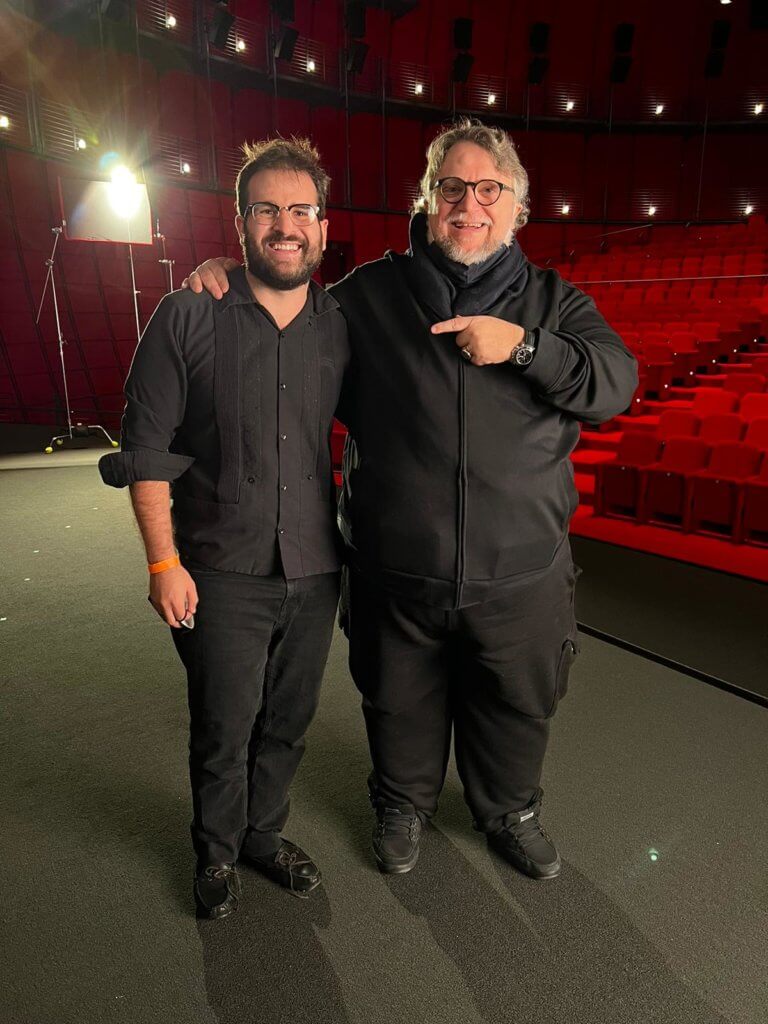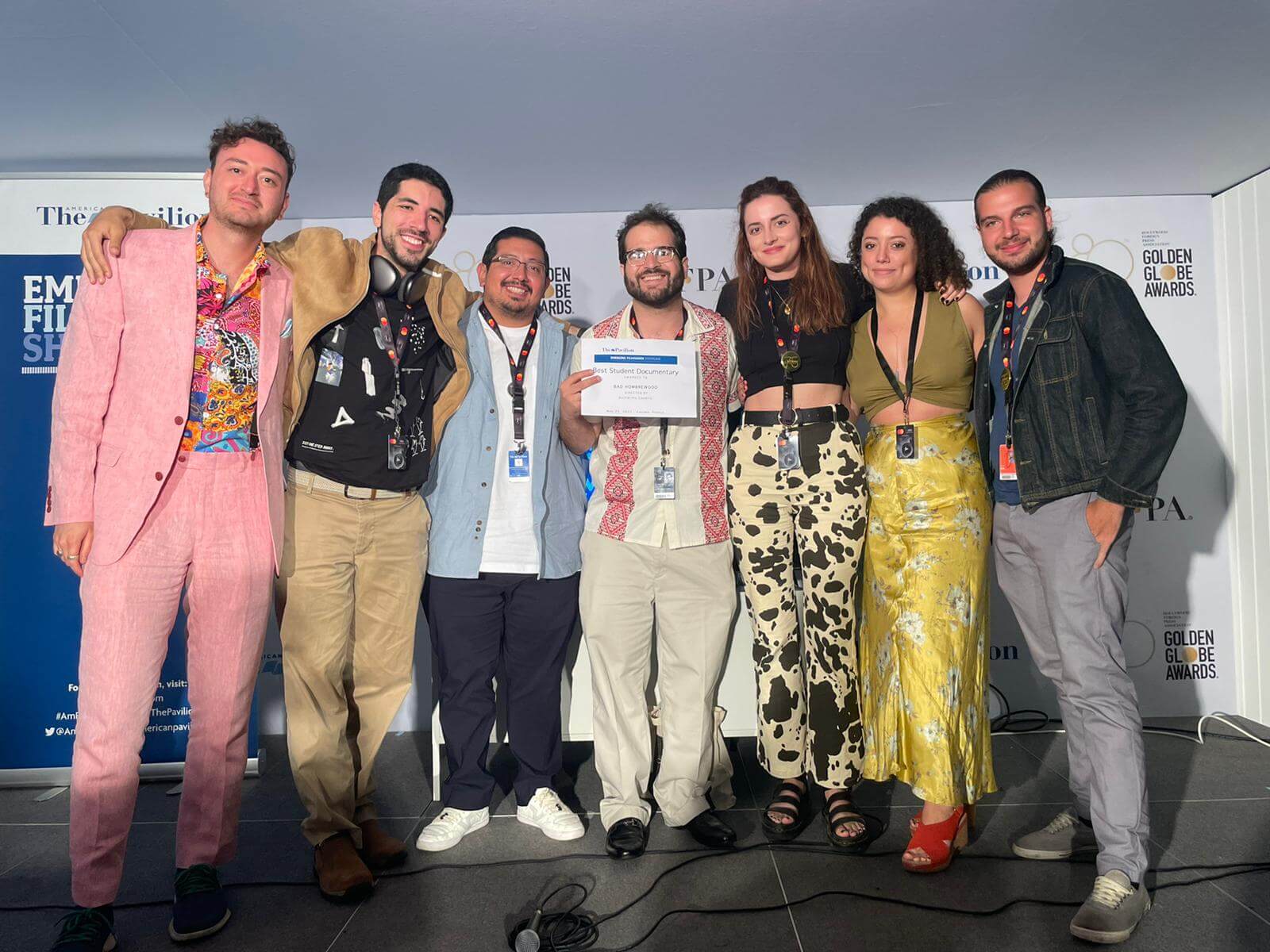Mexican filmmaker, Guillermo Casarín De la Cabada, proudly accepted his award at the American Pavilion for his captivating, informative, and earnest documentary: Bad Hombrewood. As part of the Cannes Film Festival, the American Pavilion offers an opportunity for emerging filmmakers, often recent film graduate students, to apply for a short film competition and expose their work steps away from the prestigious festival. Casarín, born and raised in Mexico City, wrote and directed the documentary short film about representation of the Latinx community in Hollywood.
In one of his meetings with a film professor from the USA, Casarín was told that there are “bad hombres” where he is from but that he was “one of the good ones.” This incident ignited the quest for young filmmaker to investigate the origins of the “bad hombres” and whether this representation in the media taps into other conversations that can empower Latinos as well as their place in Hollywood. Although the issue about diversity in Hollywood can be considered too serious or too discomforting for some audiences to digest, Bad Hombrewood creates a welcoming, fun, and open space to negotiate current racial politics.
“We didn’t want people to get depressed; we wanted to motivate people, and so the most important point in the film is that you have a voice,” said Guillermo Casarín De la Cabada during the interview at the American Pavilion.
The short film includes interviews with successful Latinx members in the film industry, such as Ben López (president of National Association of Latino Independent Producers) Phil Lord (Spiderman into the Spiderverse), Melissa Fumero (Brooklyn Nine-Nine), and Casarín’s role model, Guillermo del Toro (Pan’s Labyrinth, Shape of Water). In one crucial moment, Del Toro tells the younger Guillermo, “The only limits you have are the ones that you set for yourself.”

Inclusivity and conversation became the essence of the film. On a roundtable discussion with many people from different Latinx communities, women also shared their frustrations about not looking the part when auditioning or not speaking out for fear of getting turned down. Casarín said, “I would like to make this project into a feature film and include more conversations with women, provide more historical context of Latino representation, talk about imposter syndrome, and offer solutions to these issues.”
I asked Casarín whether he achieved the initial results he wanted after completing the film. His response was, “I wanted to encourage Latinos to participate in filmmaking. After I screened the film in a couple of places, some people told me they felt amazing after watching my film. One person, who reached out to me on Instagram, told me he was considering dropping out of film school because of how ostracized he felt, but that my film gave him hope. Even if I don’t win any awards, those individuals’ responses were what I sought to achieve.”
Guillermo Casarín De la Cabada demonstrates heartfelt commitment, relentless enthusiasm, and strong determination as a Latino filmmaker, who does not shy away from defending his core values and from creating compelling films for all audiences to experience.
